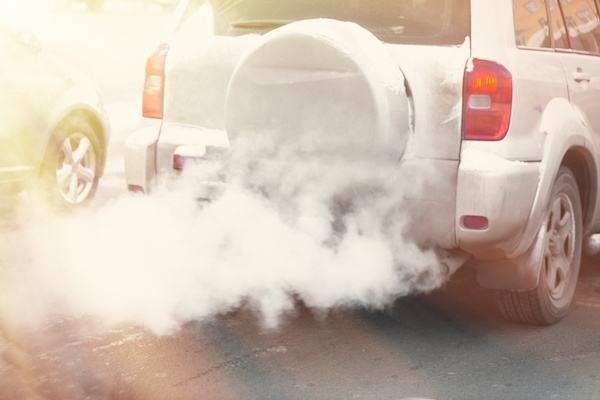
California is known for its stringent environmental regulations, especially when it comes to vehicle emissions. If you're a car owner in the Golden State, you're probably familiar with the term "SMOG test." But what exactly is a California SMOG test, and why is it required?
The California SMOG Test
A California SMOG test, also known as an emissions test, is a mandatory assessment designed to measure the amount and type of pollutants emitted by a vehicle. This test ensures that cars on the road comply with the state's air quality standards, which are the strictest in the United States. The primary goal is to reduce air pollution and protect public health and the environment.
Why Is the SMOG Test Required?
California's air quality has historically been among the worst in the nation, prompting state authorities to take decisive action. The SMOG test is part of a broader strategy to combat air pollution. Here's why it's required:
Environmental Protection
Vehicle emissions are a significant source of air pollutants such as carbon monoxide, nitrogen oxides, and hydrocarbons. These pollutants contribute to smog formation, acid rain, and respiratory problems. The SMOG test helps ensure that cars on the road emit fewer harmful substances.
Public Health
Poor air quality can lead to serious health issues, including asthma, bronchitis, and other respiratory diseases. By regulating vehicle emissions, the SMOG test helps improve air quality and, consequently, public health.
Legal Compliance
The California Department of Motor Vehicles (DMV) mandates SMOG tests as part of the vehicle registration process. Without a valid SMOG certificate, you cannot renew your vehicle's registration, making compliance necessary for legal driving.
How Is the SMOG Test Conducted?
The SMOG test involves several procedures to evaluate a vehicle's emissions system. Here's what typically happens during the test:
Visual Inspection
A technician checks the emissions control system for visible signs of tampering or malfunction. This includes examining components like the catalytic converter, oxygen sensors, and exhaust system.
Functional Check
Various components of the emissions system are tested to ensure they are functioning correctly. This might involve checking the fuel cap, ignition system, and evaporative emissions control system.
Emissions Measurement
Using a dynamometer, the technician measures the vehicle's emissions while it operates under simulated driving conditions. The levels of pollutants like hydrocarbons (HC), carbon monoxide (CO), and nitrogen oxides (NOx) are recorded and compared against state standards.
Types of Vehicles Subject to SMOG Testing
Not all vehicles are subject to SMOG testing. The requirements vary based on the vehicle's age, type, and location. Generally, the following vehicles need to undergo SMOG testing:
- Gasoline-Powered Vehicles: Cars, trucks, and SUVs powered by gasoline and older than eight years require a SMOG test every two years.
- Diesel Vehicles: Diesel-powered vehicles made after 1998 with a gross vehicle weight rating (GVWR) of 14,000 pounds or less must undergo SMOG testing.
- Hybrid Vehicles: Hybrids are also subject to SMOG tests every two years, similar to gasoline vehicles.
- Exempt Vehicles: Some vehicles are exempt from SMOG testing, including electric cars, motorcycles, and gasoline-powered vehicles made before 1975.
What Happens If Your Vehicle Fails the SMOG Test?
Failing the SMOG test can be frustrating, but it's not the end of the road. If your vehicle doesn't pass, you'll receive a report detailing the reasons for the failure. Here's what you can do next:
- Repair: Address the issues identified in the report. This might involve replacing faulty components, repairing leaks, or adjusting the engine's tuning.
- Retest: Once repairs are completed, your vehicle must undergo a retest. Some testing stations offer a free retest within a certain period, so check with the facility where you had your initial test.
- Financial Assistance: California offers assistance programs to help low-income individuals cover the cost of repairs needed to pass the SMOG test. Programs like the Consumer Assistance Program (CAP) can provide financial aid or a vehicle retirement option.
Is your car due for a SMOG test? Visit Quality Tune-Up Auto Care for a quick and hassle-free inspection. Our team is here to help you keep your vehicle running smoothly and legally on the road. Book your SMOG test with us now!